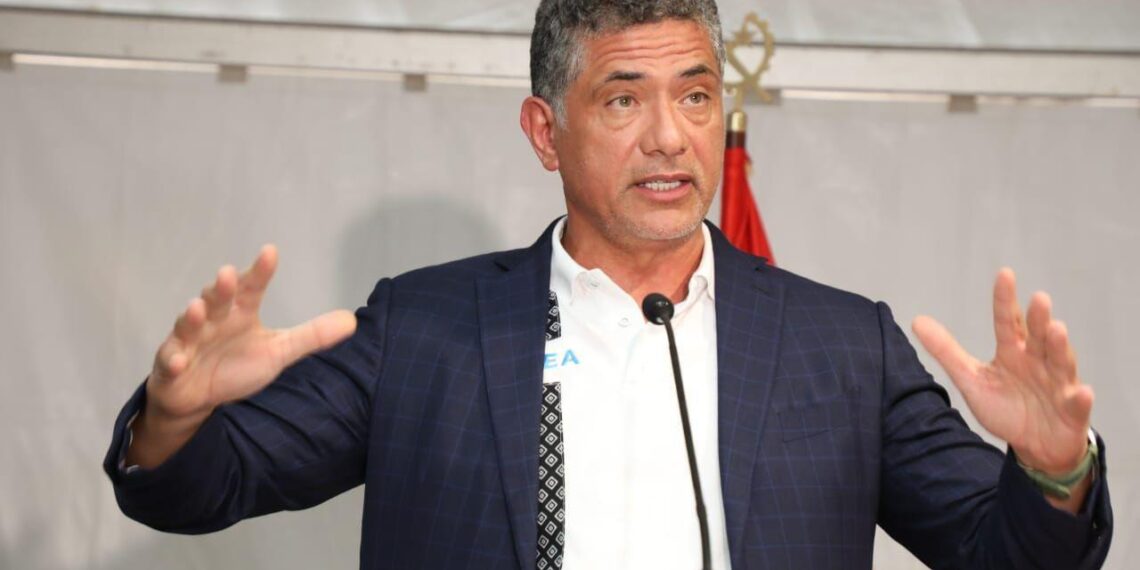On Thursday, June 20, 2024, in Macau, Minister of Energy and Water João Baptista Borges highlighted the significance of the Forum as an opportunity to promote major projects in the Energy and Water sectors in cooperation with the financial institutions present, as well as engage in discussions with government bodies from the People’s Republic of China.
Minister’s Speech in Full:
Your Excellency, Mr. Ho Iat Seng,
Chief Executive of the Macau Special Administrative Region, People’s Republic of China;
Distinguished Representatives of Diplomatic Missions and International Organizations accredited to the People’s Republic of China;
Esteemed Mr. Fang Qiuchen,
President of the China International Contractors Association;
Executive Directors and Senior Officials of Public, Private, and Financial Institutions;
First of all, on behalf of the Executive of the Republic of Angola, allow me to express our sincere gratitude for the invitation to participate in the 15th Edition of the International Infrastructure Investment and Construction Forum (IIICF) in Macau/China. The event’s theme, “Green Innovation, Digital Connectivity,” brings together business leaders from Angola and China to explore common paths for the social and economic development of our two nations, rooted in a longstanding tradition of friendship and cooperation.
Secondly, I would like to congratulate this initiative, which holds great importance for China-Angola relations. It comes at a particularly pivotal moment in the development of our ties, underscored by the recent visit of the President of the Republic of Angola to the People’s Republic of China on March 15, which led to the signing of several bilateral agreements, including the Agreement on the Promotion and Reciprocal Protection of Investments, a legal framework designed to foster greater economic cooperation and enhance capital flows and economic development between the two nations.
Your Excellencies, Ladies, and Gentlemen:
Today, the world is confronted with significant challenges, particularly in the areas of energy transition and security, water security, innovation, combating climate change, food security, artificial intelligence, demographics, electromobility, and the development of environmentally sustainable cities. These areas are crucial for economic, scientific, and business collaboration between Angola and China, with the involvement of both the public and private sectors.
The People’s Republic of China is a key strategic partner for Angola, playing a vital role in various sectors of our country’s economy, especially in the construction of dams, water supply systems, roads, ports, airports, railways, technology centers, and schools. One standout project is the ongoing Caculo Cabaça Hydropower Project, expected to generate around 9,000 MW by 2027.
China’s technical and technological expertise has provided tremendous benefits to African countries, particularly in infrastructure development and connectivity. This is evident through China’s Belt and Road Initiative, which has spurred industrialization across Africa and contributed significantly to the realization of Agenda 2063, Africa’s sustainable development plan.
Esteemed entrepreneurs,
Just under a year ago, Angola celebrated the 40th anniversary of its diplomatic relations with the People’s Republic of China, marking a high point in our cooperative relationship. Since the end of the armed conflict, China has been a vital supporter of Angola’s national reconstruction and development efforts, with Chinese investments remaining essential in sectors like Energy and Water.
Angola’s 2023-2027 National Development Plan, aligned with the Long-Term Agenda 2050, targets an installed energy capacity of 9,000 MW by 2027 and an electrification rate of 60%, with a total investment of approximately USD 23.02 billion. The private sector and financial institutions are called upon to play a pivotal role in achieving these objectives, creating opportunities for project financing, direct Chinese investment, public-private partnerships, and technology transfer.
While public investment still dominates Angola’s electricity sector, there is significant potential for the private sector to view it as a lucrative market opportunity. The country’s industrial potential, regional economic integration, and domestic consumption demand, supported by a population of about 36 million, create fertile ground for private investment.
Angola’s vast energy potential, mostly derived from environmentally sustainable and clean sources, is estimated at around 60 gigawatts, with 18 gigawatts from hydroelectric power and 17 gigawatts from solar energy. Additionally, Angola holds 900 trillion cubic meters of natural gas reserves, offering the potential to generate 17 gigawatts of electricity.
In line with Angola’s market-based economy, the private sector is expected to play a leading role in diversifying the national energy mix. We strongly encourage direct investment in energy production, transmission, distribution, and commercialization concessions, as well as in forming public-private partnerships and other business cooperation models, such as joint ventures. Angola’s legal framework for such investments is increasingly attractive, featuring the Private Investment Law, Public-Private Partnerships Law, Tax Benefits Code, and the Competition Law.
In addition to the energy sector, I would like to underscore the Angolan government’s continued efforts to meet Sustainable Development Goal (SDG) 6, with increasing investments in water supply and sanitation infrastructure.
For the 2023-2027 period, the Angolan government plans to invest over USD 4 billion in the water sector, implementing new water capture, treatment, and distribution systems. These will boost the country’s water supply by 1,149 cubic meters per day, particularly benefiting Luanda, and will connect 1.6 million families to the water network.
This financial effort will raise per capita water consumption from the current 40 liters per day to 70 liters per day, moving Angola closer to achieving its SDG targets. Additionally, the Angolan government has developed a Drought Mitigation Program for Southern Angola as part of its broader efforts to combat climate change. João Baptista Borges João Baptista Borges João Baptista Borges







